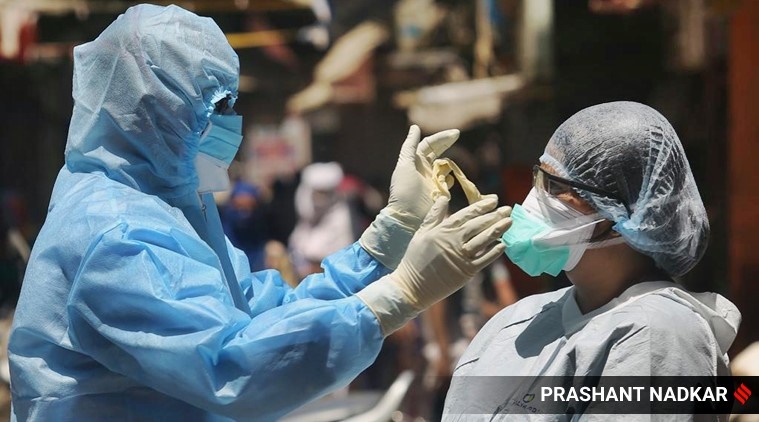 At least 420 patients from Chandigarh have been reported in the city between January and March, 2020. (Representational Photo/Photo by Prashant Nadkar)
At least 420 patients from Chandigarh have been reported in the city between January and March, 2020. (Representational Photo/Photo by Prashant Nadkar)
DESPITE THE lockdown due to COVID-19 decreasing the number of individuals approaching hospitals for Tuberculosis screening, 115 city residents were found positive in the month of March alone. In February, 167 patients were found positive for TB in the city out of more than the 1,400 patients screened. Doctors and public health experts claim that though there is not yet an explicit clinical connection established between TB and COVID-19, TB screening and treatment should continue as usual since TB infections will significantly add to the burden of COVID-19 treatment.
TB patients in Chandigarh
Due to its stringent screening activity and effective TB control programme, Chandigarh has the second highest rate of detection of TB in the union territories of India after Delhi. At least 420 patients from Chandigarh have been reported in the city between January and March, 2020. “This is probably not the whole picture anymore because fewer people are getting screened due to the lockdown. Earlier, we used to screen at least 20 patients a day, and now only a handful make it to the clinic,” says an official working under the National Tuberculosis Programme in the city.
A public health expert from PGIMER stated that one report released by Chinese doctors established a link between a TB patient’s susceptibility to COVID-19, titled “Active or latent tuberculosis increases susceptibility to COVID-19 and disease severity”. “The study observed in Shenyang, a region in China, active and latent TB patients were found to be more susceptible to COVID-19 and also had aggravated, more severe symptoms,” says the doctor, adding that the study is yet to be peer reviewed.
“Even if we cannot be certain TB patients are more susceptible to contracting the disease, TB remains an endemic challenge to countries like India which will spin out of control treatment is not treated and controlled per usual,” stated the public health expert. Furthermore, the WHO released a detailed guideline for TB patient care, highlighting that since both diseases share some symptoms, the stigma around COVID-19 might keep TB patients from getting themselves screened promptly, adding to the burden of public health care systems.
Treatment harder to administer
Under the National TB control programme, Directly Observed Treatment (DOT) centres are responsible for ensuring that medicines is administered and even delivered to registered TB patients in the area. “We are continuing that, but it has become much harder due now. A lot of staff has been placed on COVID-19 or emergency duty,” says the official from the programme in UT. The programme is already short of six lab technicians and a Senior Treatment Officer.